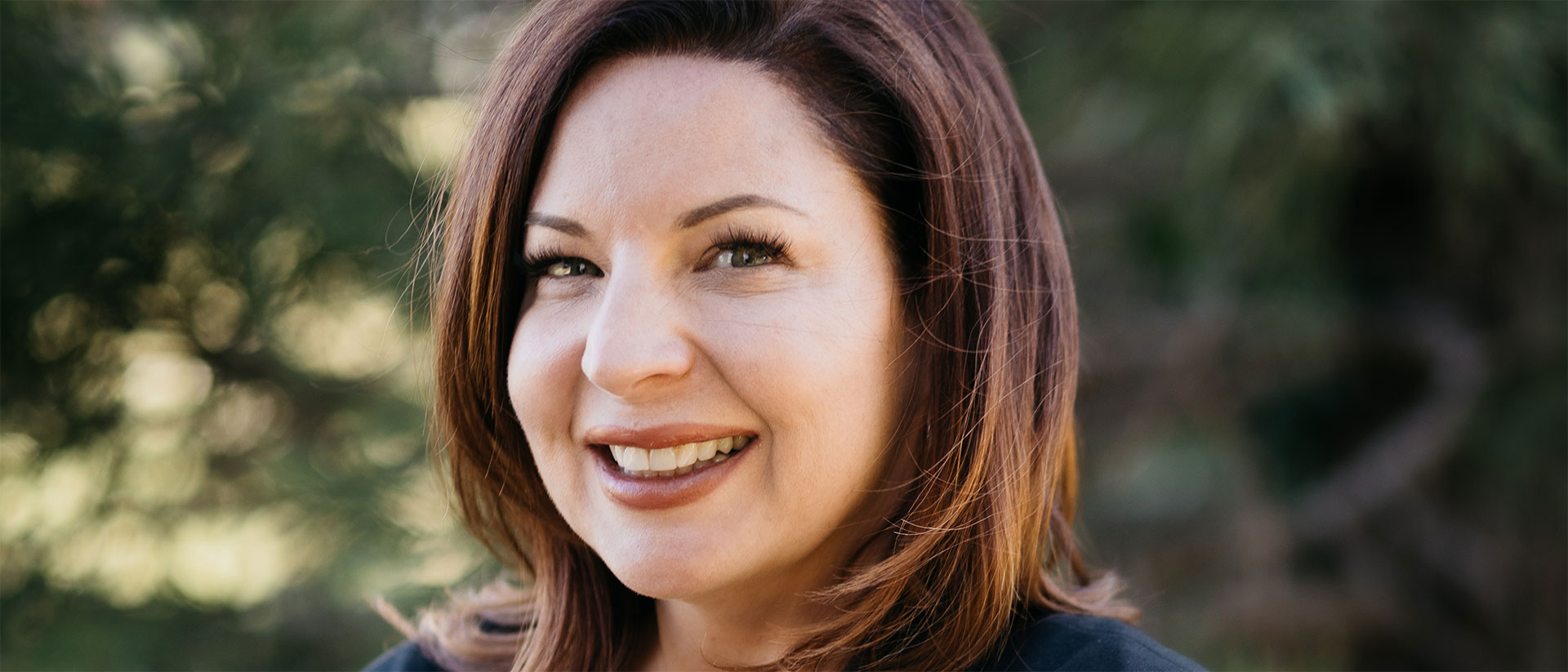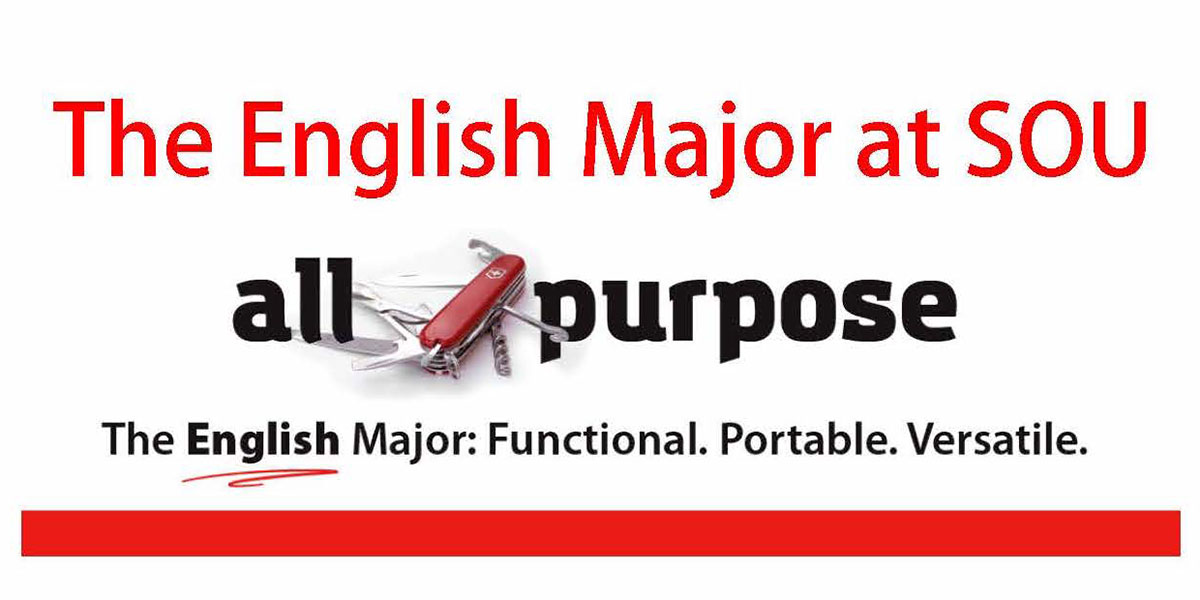- be_ixf; php_sdk; php_sdk_1.4.18
- 161 ms
- iy_2025; im_01; id_14; ih_21; imh_16; i_epoch:1.73691818412E+12
- ixf-compiler; ixf-compiler_1.0.0.0
- py_2025; pm_01; pd_08; ph_02; pmh_34; p_epoch:1.7363324585E+12
- link-block; link-block_link-block; bodystr
- pn_tstr:Wed Jan 08 02:34:18 PST 2025; pn_epoch:1.7363324585E+12
- 0 ms
- be_ixf; php_sdk; php_sdk_1.4.18
- https://sou.edu/academics/what-can-you-do-with-an-english-major/
- https://sou.edu/academics/what-can-you-do-with-an-english-major/

What can you do with an English Major?
Nicolle Aleman ’01, Director of Marketing
May 28, 2021
By Dianira Piceno, Senior English Major.
Pictured above: Nicolle Aleman, née Morehouse, has 15 years of marketing experience and has served as the Director of Marketing for SOU since 2015. She lives in Southern Oregon and is the mother of a 7 ½ year old little boy.
The English major at SOU offers a well-rounded undergraduate education, launching students to a variety of fulfilling careers. This featured series will explore the many career paths an English major can take after completing their degree at SOU.
In this interview style post, SOU alumni Nicolle Aleman ’01, talks about her current occupation and shares how her English degree has helped her navigate the professional world.

Image above: The English Major at SOU. All Purpose. The English Major: Functional. Portable. Versatile.
Dianira Piceno: Did you see yourself going into your current occupation after graduation?
Nicolle Aleman: Not even remotely. I applied for a $10/hr position in what was then the SOU Publications office as a copywriter and editor. I thought that was a great salary at the time, after working part-time minimum wage jobs as a college student! They ended up going with someone who had more experience, and I moved to Portland to get a job where many of my friends were working, at Wells Fargo, where I spent the next few years before moving on to the software industry. It was kind of funny to come back to SOU in 2015 and realize that one of my new employees had actually interviewed me for that position back in 2001. We had a great laugh about that!
DP: How did you choose your career path?
NA: My career path grew organically. I tried a lot of different things until I figured out what I liked doing and what I was good at. I spent several years working in the software industry, and for the first few years I worked in operations, where I processed orders. Then my company decided to switch CRMs and a lot of my work shifted to helping them figure that process out. I absolutely hated the technical part of my job; unless my work was very clear and cut out, and I had done it a few times, trying to troubleshoot technical issues was extremely frustrating for me. The office politics in that department were toxic, and even though I wanted to quit many times, I stuck with it and learned how to cultivate my diplomacy skills. I learned there will be difficult people at every job you work at, the only thing you have control over is your ability to find common ground with them so that you can work together to meet your company’s goals, so that experience really helped me out in the long run.
After a couple of years, a job opened up in the marketing department for an events coordinator position and I jumped at it. It turned out that I was good at remembering all the little details that come with events and I liked meeting new people. I also didn’t have a choice except to be good at the details – event coordinators work in a fishbowl, so if you forgot something, EVERYONE knew you had made a mistake and it was very embarrassing.
I spent the next few years flying all over the continent to software conferences, setting up our booth and generating leads for the software companies I worked for. I learned how to work with union and teamster unions, how to hire and fire workers for installation and dismantling of our booth, and how to negotiate with hotels, conference halls, restaurant managers, caterers, and other vendors.
I also threw parties and private dinners for our salespeople and C-level executives to entertain clients. It was a lot of work, but one of those meetings or dinners could turn into a 2 million dollar contract for the company so it had to be done. I started to become less interested in logistics and more interested in the marketing side of the job, and I had this amazing, but really tough boss at the last software company I worked at who really pushed me to grow my marketing skills, and showed me there was a lucrative career opportunity for me in the field of marketing. In 2009 the startup I worked at was sold to a bigger software company and I was laid off in that merger. I spent the next couple of years working as a freelancer before landing a job in the commercial real estate business as the Director of Community and Outreach.
DP: What did you do in order to prepare for life after graduation?
NA: Not much. I just took the first good-paying job I was qualified for and went for it. Even though I wasn’t interested in staying in banking, I learned good customer service skills and how to work in a professional environment. I also never missed a credit card bill after three years of bill collecting and have been really careful with my credit score.
DP: What skills did you gain as an English major that helped you navigate your career?
NA: The number one skill was learning how to write well. The first impression you make when you apply for a new job is your cover letter, so the ability to articulate yourself well in writing can help you get your foot in the door.
“The number one skill…”
was learning how to write well.— Nicolle Aleman
DP: Were there any challenges you had to overcome when deciding on your career path?
NA: Not really knowing what I wanted to do or having a good plan. It took just being willing to try new things and networking with my colleagues and the higher ups to figure my career out.
DP: What is one of the biggest misconceptions about graduating with an English degree?
NA: That it’s useless. A lot of people believe you just read a lot of Emily Bronte and Jane Austen and talk about it. My English major taught me how to write, it introduced me to the perspectives of people all over the world in all different timelines. My Professor, Dr. Alma Rosa Alvarez, who still teaches at SOU, was the first teacher to ever educate me on the principles of Racial Justice and Equity – she really played a big role in opening my eyes and helping me shape my values when it comes to Equity, Inclusion, and Diversity, and she did it all through storytelling.
DP: Any advice for current students who are unsure about what they want to do after graduation?
NA: Don’t feel like you have to have it all figured out by graduation day. It’s ok to just try new things by applying for entry level positions and (paid) internships. If you are reliable, have a positive, can-do attitude, and are dedicated to doing a good job, employers notice that and will sometimes want to help you grow your career. Good leaders notice talent and want to cultivate it!
I’m not a fan of unpaid internships. I think companies that offer unpaid internships are too often really exploiting free labor, and it’s typically not worth it. Please don’t let companies take advantage of you through unpaid internships. Your time and energy is valuable and you should be paid for your hard work.
DP: (Just for fun) In your free time, what do you enjoy doing?
NA: My favorite place to be is on a beach in a tropical place. I enjoy hiking, collecting crystals, cooking, and spending time with my family. Right now we’re raising baby chickens for fresh eggs and having a lot of fun with that, though we’re going to have to figure out what to do with what we thought was one of our hens, who woke us up crowing loudly this morning, announcing that he’s actually a rooster.
A huge thank you to Nicolle Aleman for participating in this written interview.
Like and Follow the English Program page on Facebook for more stories.
Interested in the English program at SOU? Learn more about the programs offered below:
English Home Page | English BA/BS | English Minor | TESOL Certificate Program


